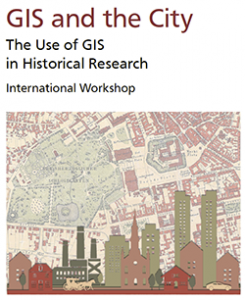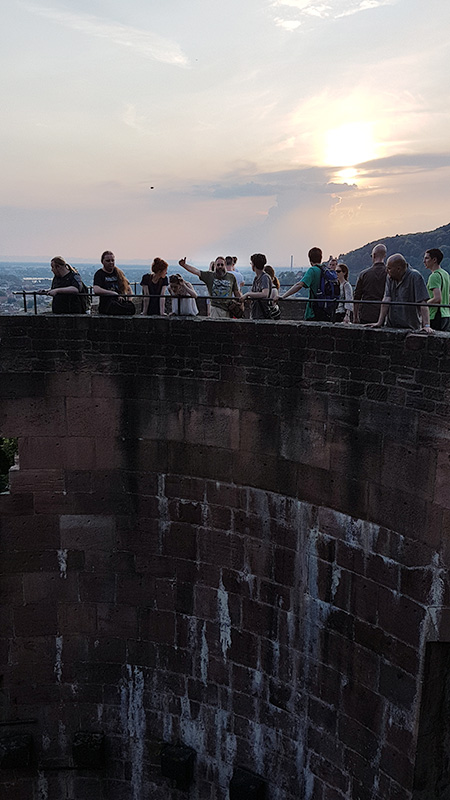DESCRIPTION
After last year’s success, we are happy to announce the return of the International Workshop on Exploring Old Maps (EOM). Many libraries own an extensive collection of historical maps. Beside their value as historical objects, these maps are an important source of information for researchers in various scientific disciplines. This ranges from the actual history of cartography and general history to the geographic and social sciences. With the progressing digitisation of libraries and archives, these maps become more easily available to a larger public. A basic level of digitisation consists of scanned bitmap images, tagged with some basic bibliographic information such as title, author and year of production. In order to make the maps more accessible, further information describing the contained information is desirable. This would enable more user-friendly interfaces, relevant queries of a database, and automatic analyses.
TARGETED AUDIENCE
The purpose of this workshop is to provide a forum for the communication of results (which may appear elsewhere) that may be useful to the community. Researchers and practitioners of all areas working on unlocking the content of old maps are welcome to participate. We welcome humanities scholars, developers, computer and information scientists as well as librarians, archivists and curators. Submissions are welcome from researchers at all career stages.
SCOPE OF INTEREST
Relevant topics are (but are not limited to) the following:
* Spatial analysis and applications of GIS concerning old maps
* Design and application of algorithms for analysis and visualisation methods
* Digital media, digitisation, curation of digital objects
* Crowdsourcing, user research, citizen science, and public humanities
* Digital Libraries for old maps
* Visualisation of old maps
* Virtual Research Environments and Infrastructures
KEYNOTE SPEAKERS
tba
ABSTRACT SUBMISSION
Authors are invited to submit abstracts for presentations, posters and demonstrations.
The workshop will not have formal proceedings. Therefore, abstracts submitted to the EOM 2017 may report on work in progress, be submitted to other places, and they may even already have appeared or been accepted elsewhere. We particularly welcome submissions that have the potential to stimulate the collaboration between the humanities and computer science. The reviewing process will mainly determine whether a submitted abstract promises to fit into the scope of this workshop.
Based on the review and its mandate to create a balanced and varied program, the Program Committee will decide about the acceptance of submissions.
The authors of the papers accepted for EOM 2017 will be invited to submit the final versions of their abstracts for on-line publication in the digital workshop booklet and will be considered for a special issue in an appropriate journal. Abstracts must be submitted to EOM 2017 via EasyChair. Each submission must specify its type in the EasyChair submission form. The abstracts must not exceed 2 pages and the second page must contain only references and figures. All submissions must use the provided Word or LaTeX template in DIN A4. Abstracts for demonstrations should include descriptive screenshots and a description of the system’s functionalities.
IMPORTANT DATES
Submissions of abstracts: February 1, 2017 (hard deadline) Notification of acceptance: February 15, 2017 Workshop Exploring Old Maps: Thursday April 6 (afternoon) and Friday April 7, 2017
ORGANISATION
Program Chairs
* Christoph Schommer, Dept. of Computer Science, University of Luxembourg
* Thomas van Dijk, Dept. of Computer Science, University of Wuerzburg
* Geoffrey Caruso, Institute of Geography and Spatial Planning, University of Luxembourg
* Alexander Wolff, Dept. of Computer Science, University of Wuerzburg
Organising Committee
* Benedikt Budig, Dept. of Computer Science, University of Wuerzburg
* Thomas van Dijk, Dept. of Computer Science, University of Wuerzburg
* Alexander Wolff, Dept. of Computer Science, University of Wuerzburg
VENUE
The workshop will take place at the University of Wuerzburg, campus Am Hubland. Modestly priced hotels (~80 EUR/night) are available downtown, with a good bus connection to the workshop location. (But be sure to reserve the hotel in advance.)
CONTACT
The workshop’s website is available at
http://exploringoldmaps.informatik.uni-wuerzburg.de/
For any question concerning the workshop, please feel free to contact us at exploringoldmaps[at]informatik.uni-wuerzburg.de



